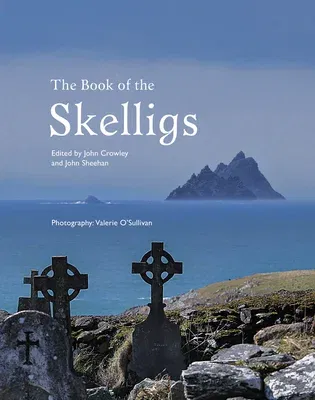This book explores the Skelligs, Ireland's most dramatic and beautiful
Atlantic islands, and focuses particularly on Skellig Michael, a famous
UNESCO World Heritage Site. It considers why the construction of a
remarkable monastic site near the peak of this island over a thousand
years ago stands as one of the most remarkable achievements in the
history of Christianity. The Book of the Skelligs combines different
approaches to deepening our understanding of the islands, combining the
perspectives of history, archaeology, cultural geography, oral
tradition, literature and natural science. It interprets distinctive
features, both physical and human, that shape the unique character of
these islands while also exploring their geology, marine and terrestrial
life as well as the historical background and cultural setting of
Skellig Michael's monastic remains. It also considers the impact of the
Vikings, and the construction of lighthouses a millennium later. Drawing
on appropriate disciplines, the book reveals how a unique cultural
landscape was generated by human activities over long periods of time.
The editors and contributors have incorporated a wide range of
illustrative material including maps, paintings, and photographs
throughout the book, many of which have not been published before. It
comprises over forty individual chapters and case studies in which the
work of academics and independent scholars is combined with that of
poets and artists to provide a wide range of perspectives on Skelligs'
distinctive character - both natural and human - during different
periods. The aim of the editors is to produce a well-informed,
accessible, highly readable, and generously illustrated volume that
succeeds in conveying a true sense of the cultural richness and
complexity of these remarkable islands. The blend of text and images is
an important part of the book, making it both suitable for the general
reader and a wide range of teaching programmes.

